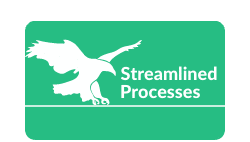Understanding the Power of Marketing Automation Campaigns
For more on Marketing Automation Campaigns – visit our main page here. Marketing automation campaigns help businesses streamline outreach, improve engagement, and convert prospects into customers. By automating repetitive tasks, companies can focus on strategy instead of manual processes.
This approach ensures consistency, precise targeting, and improved lead nurturing. Automation also personalizes customer experiences and provides valuable insights into consumer behavior. In today’s fast-paced digital world, incorporating automation is essential for scaling marketing efforts effectively.
Why A Scheduled Plan Matters
Companies aim to connect with their audience efficiently, and automation plays a huge role. Businesses nurture leads, increase conversion rates, and strengthen customer relationships by automating workflows.
Moreover, automated tools track engagement, optimize campaigns, and allow for real-time adjustments. In short, these campaigns ensure the right message reaches the right audience at the perfect moment. With this kind of efficiency, businesses save time while improving results significantly.
Key Components of Effective Marketing Automation Campaigns
Successful campaigns rely on organization, segmentation, and personalization. Marketers commonly use the following strategies:
- Email sequences: Scheduled emails that guide prospects through the sales funnel.
- Behavior-based triggers: Automated actions based on user interactions.
- Lead scoring: Assigning values based on engagement for better prospect prioritization.
- Dynamic content: Personalized messaging tailored to different audience segments.
- Analytics and reporting: Evaluating results to refine strategies over time.
Each of these components enhances customer interaction and maximizes marketing efficiency. Moreover, businesses that implement these elements see improved engagement and conversion rates in the long run.
How to Build a Successful Plan
Developing an effective strategy requires careful planning and execution. The first step involves setting clear goals aligning with business objectives.
Next, businesses should segment their audience based on demographics, behavior, and interests. Doing so increases personalization, which enhances engagement. Furthermore, crafting relevant content ensures messaging resonates with potential customers.
During implementation, marketers should use automation tools to execute workflows seamlessly. Regular monitoring and analysis help identify areas of improvement. Lastly, refining strategies based on data ensures continued success over time.
Best Practices for Marketing Automation Campaigns
To maximize the benefits of automation, businesses should adopt the following best practices:
- Personalization: Address customers directly and tailor content to their preferences.
- Testing and optimization: Continuously A/B test different campaign elements for better performance.
- Lead nurturing: Gradually educate prospects instead of pushing direct sales.
- Integration with CRM: Align marketing campaigns with sales processes for streamlined lead management.
- Responsiveness: Ensure campaigns adjust in real time based on customer behavior.
By following these practices, businesses can improve engagement and build stronger customer relationships. Automation becomes a valuable tool when used strategically and purposefully.
Common Mistakes to Avoid
While automation simplifies marketing efforts, certain pitfalls can hinder success. One common mistake is over-automation, which makes interactions feel impersonal.
Additionally, failing to update or monitor workflows results in irrelevant messaging. Therefore, reviewing data regularly ensures campaigns stay fresh and valuable. Another misstep is neglecting audience segmentation, which leads to decreased engagement.
Marketers should also avoid sending too many messages, which frustrates recipients and reduces open rates. In the same vein, businesses must ensure their automation strategy complements human interactions instead of replacing them.
The Future of Marketing Automation Campaigns
With advancements in technology, the future of automation looks promising. AI-driven tools will further enhance personalization and predictive analytics. As a result, businesses can anticipate customer needs more accurately.
Moreover, integrating automation with omnichannel marketing will improve brand consistency across touchpoints. In addition, data privacy and compliance will continue shaping automation strategies. Companies must balance personalization with ethical data usage.
In conclusion, businesses that stay ahead of trends will reap automation’s full benefits. With continuous improvements, marketing campaigns will become even more efficient and customer-focused.

